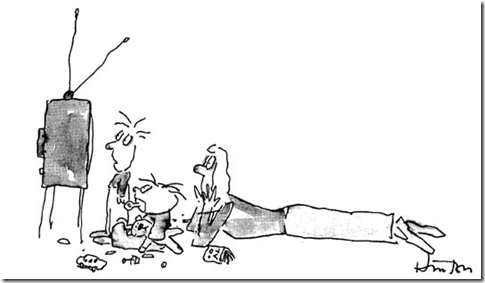Matthew Dicks's Blog, page 450
August 22, 2013
My storytelling secret: I’m a small, frightened man onstage. Always.
I’m off to New York tonight to compete in another Moth StorySLAM.
I have been exceptionally fortunate enough to win the last four StorySLAMs in which I have competed, including my last three in New York.
I am not attempting to be humble in any way when I describe this recent streak of consecutive victories as exceptionally fortunate. A great number of factors come into play when competing in these events. In addition to a storyteller’s actual performance, the order that the names are chosen from the hat plays an enormous role. You can tell the best story of the night, but if you are the first or even second storyteller of the evening, you have almost no chance of winning.
The judging is also very subjective. While the judges typically do an excellent job, the difference between the winning story and the second or third place story is often slim.
Sometimes nonexistent.
So a story that may have easily won in last week’s competition might not place second or third the following week, depending on who has been chosen to judge and the level of competition.
It’s also extremely helpful when the names of some of the best storytellers in the house remain in the hat, as was the case when I won last week. When three champion storytellers are unable to the the stage because of bad luck, your chances of winning increase considerably.
You need to tell a good story, but you need some luck on your side, too.
I’ve been telling stories for The Moth for two years now. I’ve told stories in 18 StorySLAM competitions so far and won 8 of them. I’ve done well and am admittedly proud of my success.
But here is the truth:
Last night a friend said to me, “It must be exciting winning all of these competitions in a row. You probably want to win tomorrow night and keep your streak alive. Huh?”
While it’s true that I would love to win tonight’s competition, the real truth is that as much as I always want to win, I’m much more worried about not making a fool of myself onstage. No matter how many times I take that stage and tell a story, and no matter how many times I win one of these competitions, the possibility that I will stand before that microphone and make an idiot of myself remains my primary concern.
It’s odd. I love storytelling, and I especially love storytelling for The Moth. I love the audiences and my fellow storytellers and the competitive aspect of the event. I love it all. I would take the stage every night and tell a story if I could, and yet it still scares the hell out of me. Perhaps a little less now than it did my first night two years ago, but when I am telling a story, I feel like I am walking on a high wire.
If I perform well, I have the chance to thrill an audience.
But there is also the ever-present possibility that I will fail, and if so, I will fail in front of an audience who were depending on my to entertain them for five minutes. Even worse, I will fail in the midst of sharing something meaningful or intimate about myself.
So if you see me on stage tonight or at any point in the future and think I look exceptionally poised and confident in the midst of my performance, please remember that there is also a small, frightened man on the stage as well, hoping like hell that the audience will like him and terrified that he will fail miserably.
Woman are cold
My friend, who happens to be a physicist (so you know he’s smart) believes that women have a four degree comfort zone and men have a 20 degree comfort zone, and this explains why women are so often cold in an air conditioned environment.
I agree with this hypothesis. I have expanded slightly on his theory by identifying the average temperature ranges for both men and women.
In my experience, women seem to be most comfortable in a 68-72 degree environment, whereas men seem just fine in temperatures ranging from 60-80 degrees.
I have not conducted a formal study to determine if my friend’s theory is correct, but I know this:
In my four decades on this planet, I have never heard a man express the need for a sweater, jacket or wrap upon entering an air conditioned space. but I have heard a hundred thousand million women express this exact sentiment.
This has been enough evidence for me, but lo and behold, there is actually some research that supports this belief. Findings suggest that there is a significant difference in heat perception between men and women on average. While studies have found that women’s actual core body heat is slightly higher than men’s, women’s extremities tend to be a lot colder.
In 1998, researchers at the University of Utah added a layer of subtlety to science’s understanding of gender and body temperature. As had been found in previous studies, the researchers observed women tended to possess higher core temperatures than men (97.8 °F vs. 97.4 °F). Their hands, however, were consistently colder. A lot colder. While men registered an average hand temperature of 90 °F, the mean hand temperature for women was just 87.2 °F.
Similar studies have also found this to be true for women’s feet as well. Apparently this reduced temperature in a woman’s extremities accounts for greater sensitivity to changes in air temperature.
Thus the constant need for a sweater.
What will forever remain a mystery to me is how often a woman finds herself in need of a sweater and doesn’t have one. If you’ve spent your entire life shivering in movie theaters, restaurants and banquet halls, why would you ever leave the house without an additional layer?
I suspect that I’ll find no answer to this eternal conundrum.
If you can fly, fly.
I’m not complaining about having to stop for these geese, who were crossing from one side of the road to the other. It took less than a minute to allow them to pass, and frankly, it was kind of cute to watch.
But have these stupid birds forgotten that they are capable of flight?
Perhaps if there had been some baby geese included in the flock, I would better understand their decision to walk, but these were all full grown geese.
Fly, damn it.
August 21, 2013
Creating a list of things that you should never do after 50 is asinine. So are most of the items on this list.
I read a blog post today by author Jacquelyn Mitchard entitled 22 Things You Should Never Do Again After 50.
I hate it so much.
It is the anti-Dylan Thomas post. It is an example of embracing the dying of the light. Ironically, Mitchard lists 21 things to quit after the age of 50 and then ends her list by recommending that you never give up.
“Never,” she says, except for the preceding 21 items, apparently.
Here’s her list, along with some commentary of my own.
1. Parkour: I’m eight years away from 50 and feel like parkour is still well within reach if I so desired.
2. Jell-O shots: I haven’t done them in a decade, but why eliminate this perfect alcohol delivery system as an option because of age?
3. Karaoke after midnight: Nothing wrong with this at all (unless you’re in bed by 9:00 every night).
4. Karaoke after Jell-O shots: This should be the recommended way of singing karaoke.
5. Trying to break a plank with your head: See parkour.
6. Mud wrestling (intentional): It’s sad when adults forget some of the pure joys of childhood. Why eliminate this possibility from your life?
7. Crowd surfing to the mosh pit: Mick Jagger is 70. I could certainly handle it at 50.
8. Joining the circus. Joining the ashram: This is a truly sad suggestion. Imagine saying no to the circus? And yes, I had to look up ashram, too.
9. Drinking champagne from your son’s girlfriend’s shoe: This was not a good idea at any age.
10. Drinking champagne from your daughter’s boyfriend’s shoe: See above.
11. Drinking champagne from your own shoe: Does anyone even engage in these bizarre champagne-footwear combinations, and if so, why?
12. Xtreme bingo cruises: While this would never appeal to me, it sounds like something specifically suited to senior citizens.
13. Collecting owls made of shells, frogs made of ceramic or lawn gnomes made of anything — really, really anything: I’m not crafty, so I’ll refrain from expressing an opinion on this incredibly stupid hobby.
14. Playing basketball in high heels: A failed attempt at humor. This should not be done at any age.
15. Throwing a wet T-shirt contest. Throwing a wet nightshirt contest: Sex does not end at 50. Nor should wet T-shirt contests.
16. Getting publicly and verbally excited about the number of stamps in your passport, zeroes in your paycheck, capital letters before or after your name (unless they’re H.R.H.), number of names on your phone-favorites list, number of people you could have married, the size of your acreage … or the size of your anything else: This was never a good idea at any age.
17. Explaining your personal role in the fact that your kids “never really got into any of that stuff …”: I believe in taking credit for as much as possible, including lucky bounces, unplanned windfalls and the success of your children despite your inattentiveness. Most importantly, reaching five decades of life should not impact this decision in any way.
18. Explaining your personal role in the fact that your kids got into an Ivy League college: See above, and c’mon. You had to do something right if your kid is going to Harvard.
19. Explaining your personal role in starting the rumor that Paul was dead: I don’t get this.
20. Single-spacing your Christmas letter: I submit all my manuscripts in single space. It annoys my agent and editor, but I like it. However, Christmas letters should have ended in childhood.
21. The Dougie: Dance until you’re dead, any damn way you please.
22. Giving up — ever.
Perhaps I despise this list because it amount to a series of endings, and I despise endings. Pile up enough endings and you’re dead.
I avoid endings at all costs.
August 20, 2013
Wigs for bald, baby girls are a thing now. Stupid parents have been around forever.
There are wigs for babies now.
Designed for parents (mothers) who are tired of listening to strangers refer to their bald, baby girls with masculine pronouns, Baby Bangs seeks to make baby girls look more like baby girls.
… the website reads, undoubtedly capturing the frustration and outrage of bald baby girls everywhere.
Even as a novelist who tends to write character-driven stories, it’s difficult for me to imagine the level of self-centeredness, image obsession and lack of self worth required to strap a wig onto your baby girl so people on the street would no longer mistake her for a boy.
I ask myself:
What kind of mother or father would be feel hurt, threatened, disappointed, upset or even outraged by some wobbly old lady or store clerk mistaking their baby girl for a baby boy?
The horrifying kind. The wretched kind. The disgusting kind.
The kind that only dresses their child in designer clothing. The kind that believes that their child’s outward appearance has some bearing on how others perceive them. The kind that thinks of their baby daughter as an accessory akin to a handbag.
I’m sure that the purchasers of Baby Bangs would argue that this is not the case and to mount a strong defense on their behalf, but this defense would be coming from someone who just strapped a wig to their baby’s head, so any credibility they may have enjoyed has already been destroyed.
As Baby Bang should be as well.
Not surprising, my wife was right again.
I’m a dummy. A big, dumb, dummy dumb-dumb.
There was a time, not so long ago, when I told my wife that one child was enough. I argued that our daughter, Clara, was all we needed in terms of children, and we should seriously consider having no more.
I believed that with one child, we had a greater chance of giving Clara everything she always wanted and needed.
My wife disagreed. She wanted a second child because she wanted another little one running around the house. But I think more important to her, she wanted Clara to have a sibling.
I didn’t think having a sibling was terribly important. I didn’t think Clara would care much either way. This is because I am an idiot.
It turns out that “everything my daughter ever wanted or needed” included a brother. Clara loves her brother in a way that I have never seen a sister love a brother before. She is bursting with love for him.
Had I not listened to my wife, moments like these would never have happened.
August 19, 2013
Baseball pitchers are cowards. All of them.
Last night Red Sox pitcher Ryan Dempster threw four consecutive pitches at Alex Rodriguez. The first nearly hit him in the legs. The next two were tight inside. The fourth finally hit him in the elbow and ribs.
Your browser does not support iframes.
These pitches were intentional. No one debates this. Obviously Dempster is not pleased with Rodriguez’s use of performance enhancing drugs. Even as a Yankees fan, I am not pleased. I’d prefer that Rodriquez be banned from baseball permanently, and I’d like to see every other PHD user banned for life, Yankees included/
I’m also not so naïve as to forget that beloved Red Sox slugger David Ortiz was also busted for steroid not that long ago.
But here’s the thing about last night’s incident and incidents similar to it:
Baseball pitchers are cowards. All of them. Even my beloved Yankees.
Long ago, it became acceptable for a pitcher to throw a ball at an opposing batter for any number of ridiculous reasons. Sometimes it’s in retaliation for a previously plunked batter, even if the previous incident was clearly accidental. Sometimes pitchers hit batters because they don’t like the way the batter trotted around the bases after a homerun or the length of time a batter spent admiring a homerun ball. Sometimes pitchers are upset because the batter stole a base when his team was leading by four runs or the batter hit too many homeruns in a single game or the batter said something unacceptable to the media.
Pitchers stand 60 feet away from their nearly defenseless victims and throw a rock-hard ball 80-90 miles per hour at their legs, backs, elbows and shoulders. Sometimes their aim is not true and they hit a head.
Like a said: They are all a bunch of cowards.
Can you imagine if this happened outside a baseball game?
My neighbor is offended by something I say or do, and in retaliation, he throws a rock at my knees from behind his backyard fence.
Or my colleague is displeased with the way I’m boasting about a recent performance review, so in retaliation, he throws a shoe at me from across the room.
These things don’t happen in the real world, not only because these actions would seem stupid, childish and possibly criminal, but because the real world is not populated with nearly as many cowards as you can find in a major league bullpen.
Is there anything less honorable than throwing a ball at a man who is forced to stand in a small, chalk-outlined box and wait for it to happen?
And then if the batter retaliates by charging the mound to fight the coward who just threw a ball at him, the batter is thrown from the game and possibly fined for his actions.
In baseball, you’re punished for acting like a man and attempting to at least fight fair.
Last night Alex Rodriguez got the last laugh by hitting the game-winning homerun. There’s no better revenge than winning, and sadly, there is no other revenge available to Rodriguez, since he is not a pitcher.
Leave it to the Red Sox to make Alex Rodriguez, the most hated man in baseball (and justifiably so), appear sympathetic, at least for a moment.
Hate the parents
Hopefully, this is one of the most disgustingly gratuitous bar mitzvah entrances of all time. Right?
Please tell me that it doesn’t get much worse than this. I can’t even begin to imagine what worse than this would look like.
I have a theory on the golf course that if play is slow, you should hate the group ahead of you, even if you know that there is a group ahead of them who is creating the problem.
It’s much more fun to hate the players you can see rather than a group of theoretical players somewhere ahead on the course.
I’m going to violate my “hate the one you can see” rule in regards to this video. While I’m fairly certain that I wouldn’t like the boy featured in the clip if I knew him in real life (it’s hard to imagine liking anyone involved in a display of narcissistic opulence such as this), I’m going to choose to hate the unseen parents rather than the boy for allowing this spectacle to take place and then thinking it wise to post it online.
Maybe not hate them. That might be too harsh. Blame them. Blame them for allowing this gaudy display of wealth and self-centeredness to take place.
No. I take that back. I was right the first the time. Hate was right.
Our kids don’t see us watch television. It wasn’t planned, but I’m still taking credit for it.
Sometimes parents read the research on a subject and make informed parenting decisions. Other times they unintentionally, accidentally make a great parenting decision and, if they are like me, take credit for it anyway.
When it comes to television, my wife and I were well aware of the research indicating that television viewing should be restricted before the age of two, and we adhered to this policy fairly closely with our daughter and are doing the same with our son.
But it turns out that the amount of television that our children see us watch has an enormous impact on the amount of television they will watch in the future, too.
According to a new study published in the journal Pediatrics, what’s most important in children’s viewing habits is how much TV (or DVDs or online entertainment) parents watch.
The amount of TV the parents watched predicted the kids’ screen time, and this association was even stronger than that linked to parental restrictions on TV viewing, where the TVs were placed in the home, or how much television parents and children watched together.
“We are wired as children to pick up from our environment what we observe quicker than what we are told,” says Dr. Gopal Chopra, a neurosurgeon, associate professor at the Duke University Fuqua School of Business and founder of PINGMD, a medical app company. “Children are mirrors and we must be vigilant of the impact of our behavior, including the exposure to “glass” (technology screens), as they will know it to be OK, and any discipline will fall on deaf ears.”
I was sitting next to my daughter as I read this report. She was doing a jigsaw puzzle and humming quietly. I turned to her and said, “Clara, when do Mommy and Daddy watch TV?”
She thought about it for a moment, continuing to manipulate puzzle pieces as she did, and finally said, “You should watch TV, Daddy. Maybe you can watch TV with me.”
My heart soared.
With the exception of football, the occasional morning news program and the moments when Elysha or I sit with her and watch a show like Word World or The Wonder Pets, it occurred to me that Clara (and now Charlie) have never seen us watch television. The viewing of scripted television programs like Breaking Bad and Mad Men is done long after our kids have gone to bed.
Just like we planned.
Not really, but again, I’m taking credit.
On a potentially negative side note, Clara has almost only watched PBS programming and this, in combination with our lack of television viewing, has left her completely unexposed to commercial television and (we recently discovered) highly susceptible to television advertising. While many of the commercials that air during football games and news programs actually frighten her, she recently went to Elysha asking which stain stick we use on the laundry, explaining that the brand she had seen on television is perfect for baseball grass stains. When Elysha showed her our preferred stain stick, she complained that it wasn’t the right one and needed to be replaced immediately.
I’m not sure what the research is on the effects of underexposure to television advertising, but I’m a little worried that we’ve created a monster when it comes to her susceptibility to marketing.
August 18, 2013
This Stephen Colbert segment is perfect. Stop everything and watch it now.
This satirical, snarky, occasionally condescending segment from The Colbert Show has given me heartfelt, legitimate hope for the country. It has caused me to question some of my assumptions about people and reminded me to keep an open mind at all times. It’s inspiring. And funny as hell.
It’s one of the best seven minutes of television I’ve seen in a long time.
The Colbert Report
Get More: Colbert Report Full Episodes,Video Archive














